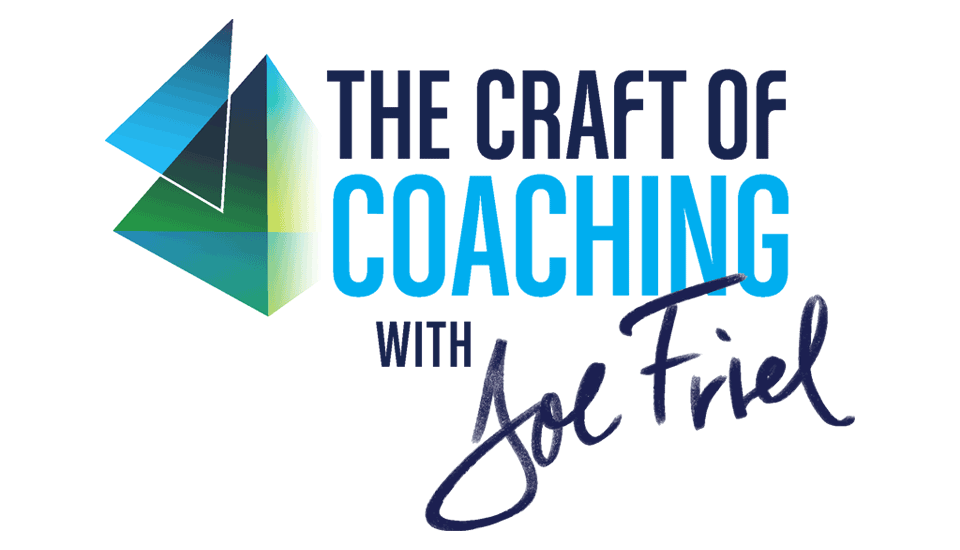Dealing with Problematic Athletes
Joe Friel refers to his colleague Gordo Byrn, a former pro triathlete and coach with a fresh take on client retention. Check out Making Money as a Coach to hear more on this topic of dealing with difficult athletes (around 10:38 in the video).
Video Transcript
Joe Friel 00:02
One of the common problems I always ran into was the athlete who just didn’t do the workouts, didn’t follow the plans, had perhaps their own idea of how to do things. It was really difficult to coach because the athlete and I weren’t on the same page. We weren’t working the same direction, we had the same goal, but we were going two different directions to get there. Is there anything like that for either of you that you’ve dealt with with athletes?
How to Deal with a Stubborn Athlete
Ryan Kohler 00:33
For that really stubborn athlete where they’re just not going to do what you do… my initial steps are always, “Hey, let’s talk about this.”
Ryan Kohler 00:42
For one, find out, “Do you want all those green days? Are you okay with green, yellow, and red mixtures?” Like, let’s find out what, what’s reasonable for them. But if they’re the ones where they’re just not going to do anything I’ll have that discussion to see if we have a reason for this, are we both in alignment on it? If not, why, but then a question I wanted to throw back out to both of you is, yeah, if you get that stubborn athlete, where you’ve kind of done your troubleshooting, you know, is there a point where you just kind of let them hang themselves out to dry a bit? I know I’ve done that with a few athletes.
Joe Friel 01:14
Yeah, good point.
Alison Freeman 01:16
It is an interesting question. I do find it fascinating that you have athletes that hire a coach, and then don’t want to listen to what the coach tells them to do. You really kind of wonder, like, what the psychology is behind that. But I mean, I definitely start by trying to get them on the same page. Maybe they’re just like you said, stubborn, and they have their own thoughts about how you go about training or the proper way to execute a bike ride or whatever that is. I had an athlete, I have an athlete, who I think he thinks he’s a cyclist. But he signs up for triathlon. So he rides like a cyclist, which would be fine, if those were the races he was signing up for. So we’ve had to work, I mean, I’ve worked with him for months to get him to ride consistent effort level and not surge and rest, surge and rest. He did come around, but I think it took four to six months of kind of consistently badgering him. But I think that there was a point that I did actually throw up my hands, and I was like, “I’ve told you five times, this is how you’re supposed to ride a triathlon-style bike ride. If you’re not going to do it, then yeah, I’ll just let you go blow out your legs, and we’ll see what happens.”
Joe Friel 02:34
Would you ever end the relationship with that athlete over such situations?
When to End a Coaching Relationship
Alison Freeman 02:41
That’s a really good question. I think just the question in general of when do you terminate a coach-athlete relationship is a really complicated one. I think that at the point that, if he was getting frustrated for lack of progress, but not acknowledging that he wasn’t making progress because he wasn’t listening to what I was telling him, then at that point, then I would have terminated him and been like, “We’re not finding common ground,” and the relationship isn’t functional at that point.
Ryan Kohler 03:12
That’s an opportunity. I think I’ve used that a few times just to ask, “Are things going the way you’re expecting them [to go]? Or do we need to change them or end them?”
Letting an Athlete Go Could Be a Good Thing
Joe Friel 03:21
Interesting conversation here. I had a friend of mine who is a coach, also from Boulder, Colorado. I was talking to him about this topic. At one point he said, “Actually, I think it’s a good thing.” He says when you come to the point where you realize this athlete and you just aren’t on the same page, it’s time to separate because this now opens up an opportunity for you to find a better athlete–as opposed to working with an athlete who is not compliant, who makes your your job more difficult than it should be. This is an opportunity to end that relationship and have reason for it, and then find somebody who’s better. But along the way, what you did was you learned something, you learned how to screen your athletes, to make sure you get athletes who are compatible with you and the way you coach. I thought that was a unique way of seeing it because most of us take just the opposite position. We don’t want to lose an athlete because it’s very difficult to get a new athlete. His position always was let them go. Let them go because this is an opportunity.
